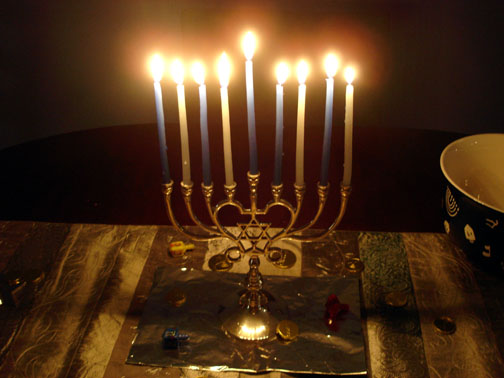The Jewish celebration of Chanukah, the “Festival of Lights,” commemorates the successful struggle for freedom and independence of Israel from the Selucid Greeks, about 2200 years ago. At the conclusion of this war, the Macabees purified The Temple in Jerusalem and sought to relight their “Eternal Lamp.”
They only had enough oil for one day. The process by which they made oil required eight days. Miraculously, one day’s oil lasted eight days.
Clearly, God believes in energy conservation and, as they used olive oil, renewable energy.
A brief history:
Alexander the Great, aka Alexander of Macedonia, acquired the Kingdom of Judah without a battle. But his empire collapsed after his death. The Kingdom of Judah became part of the Selucid Greek Empire. Where Alexander promised the Jews religious freedom, the Selucids demanded that the Jews worship the Greek pantheon. The Jews rebelled, following the Macabees. They won. The Macabees established the Hasmonean Dynasty, which ruled for 101 years, from 164 Before the Common Era, BCE, to 63 BCE, until the Romans came, saw, and conquered.
The Jews, then known as the Judeans, from the province of Judea, subsequently rebelled against Rome. The First Jewish–Roman War took was fought from year 66 to year 73, the Kitos War was fought from 115 to 117, and the Bar Kokhba revolt was fought from 132 to 135. From these rebellions we get two holidays: Tesha B’Av, which is observed by Jews as a day of mourning, and Christmas, which is generally not celebrated by Jewish people today.
More details are on Wikipedia, and, in a more comprehensive fashion, in Jews, God and History, by Max I. Dimont. ASIN: B0012H8UJI, 1962.
